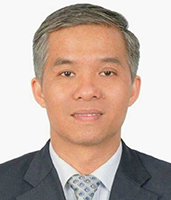Although the central government has provided strong special financial funds for the control of the COVID-19 outbreak, an enterprise, apart from using various commercial insurance facilities, should have a clear understanding of social insurance, medical insurance and housing provident funds that occupy its relevant operating cash flow and involve its employees’ futures or discountable legal rights and interests. This article interprets the latest regulations and puts forward suggestions for implementation by referring to the relevant regulations enacted in the severe acute respiratory syndrome (SARS) outbreak of 2003.
Policies during SARS
Tax incentives. The tax declaration period was extended; donation and other specific-purpose expenditures were disbursed before tax, and a grace period was granted for the payment of indirect taxes during the suspension of business. Corporate income tax on income from technical achievements in light of SARS prevention and treatment was reduced or exempted. Taxes levied on industries (such as severely affected industries) that had been originally subject to verified collection, or collection at a fixed rate for a fixed period, were cut by 50% at the maximum, or the rate was re-checked; the VAT threshold was increased.

Senior Partner
ETR Law Firm
Grace period for paying social insurance premiums. During SARS, Beijing, Guangdong, Zhejiang and other places introduced similar policies. For example, within three months from the date of releasing the policy, payers that had actual difficulty in paying due social insurance premiums because of the impact of SARS could apply to the Municipal Local Taxation Bureau for deferred payment of social security premiums with a maximum extension of three months, and no overdue fine would be imposed in the approved deferred payment period.
Policies during COVID-19
Tax declaration. The government has introduced the following policies: the Announcement of the State Administration of Taxation on Matters Concerning Tax Collection and Administration Supporting the Prevention and Control of COVID-19 Outbreak; the Notice by the State Taxation Administration of Optimizing Tax and Fee Payment Services to Support the Effective Prevention and Control of the Outbreak of COVID-19; and the Notice on Matters Concerning the Further Extension of Tax Declaration Period for February 2020.

Legal Assistant
ETR Law Firm
Social insurance and housing provident fund. (1) In respect of the interim reduction and exemption of social insurance premiums, the relevant authorities have issued the Notice of the Ministry of Human Resources and Social Security on Interim Reduction and Exemption of Enterprises’ Social Insurance Premiums, and the Guiding Opinions of the State Medical Insurance Administration on Interim Reduction in Collection of Basic Medical Insurance Premiums for Employees.
(2) In respect of the grace period for payment of housing provident fund, the relevant authorities have introduced the Notice on Implementation of Interim Support Policy of Housing Provident Fund for Proper Response to COVID-19; Guangdong issued the Notice on Guarantee of Housing Provident Fund Services during the Epidemic Prevention and Control Period; and Guangzhou introduced the Notice on Strengthening Housing Provident Fund Management Services during the COVID-19 Prevention and Control.
Recommendations
Tax declaration. It is recommended to update and open the online access system for tax declaration launched on 28 February this year, as well as the interfaces for interim reduction and exemption of three social insurances, medical insurance declarations and attached documents as soon as possible. The housing provident fund systems are online encryption systems that are established by various local provident fund management departments and can be networked with the taxation bureaus’ network systems, so it is equally important to timely update and open these systems, too.
Local policy implementation
Conditions for approving grace periods for payment, and reduction and exemption. (1) According to the data released by the Ministry of Human Resources and Social Security and the National Healthcare Security Administration, the authors believe that the six-month requirement set out in the latest regulations is to ensure the distribution of benefits and the fund balance. Therefore, all local authorities shall adjust measures to local conditions and implement classified policies. If the accumulative balance of the medical insurance pooling fund allows expenditures for more than six months, the payment borne by entities may be reduced by 50%. In the case of less than six months, a grace period may be granted for such payment. The payment grace period that has been implemented in the previous period may be continued without an overdue fine imposed in the relevant period.
(2) Make use of more policies to reduce the financial burden according to the local conditions, provided that the 2020 fund income budget is not violated. For example, Guangzhou introduced the relevant regulations on 21 and 26 February, respectively, requiring that enterprises to be granted with a payment grace period should be strictly limited in the industries and scopes specified in local documents by classification at different levels according to the actual conditions of each place, and the scope should not be expanded without authorization. For example, if an enterprise that has been granted the payment grace period dismisses more than 20% of its employees in the grace period, such grace period shall be suspended.
Continuation of treatments related to reduction and exemption, and grace period for payment. (1) Social insurance: The operation should be simplified. During the grace period for payment, the benefits for the employee who is transferred, lifted from labour contract, or retires from an entity will not be affected and separate arrangement may be made for his/her own payment.
(2) Medical insurance: During the grace period for payment, the personal account of medical insurance will not be distributed and the payment period will not be registered for the time being. However, enterprise employees and retirees are entitled to basic medical insurance hospitalization treatment or outpatient treatment for certain diseases.
In addition, enterprises should pay attention to the special regulations on housing provident funds in Guangzhou and other places applicable to wholesale and retail, logistics and transportation, accommodation and catering, cultural tourism, and other industries affected by COVID-19 outbreak.
The principles for enterprises to implement various local policies and plans should be short-term inclusive benefits with more focus on short-term and mid-term improvement of weak points, strengthening work and production resumption, and establishment of a classified management mechanism. If enterprises conduct orderly epidemic control and work resumption, they will surely receive good results.
Jeffrey Quan is a senior partner at ETR Law Firm. He can be contacted on +86 20 8351 0051 or by email at qzh@etrlawfirm.com.
Wu Zhenyu is a legal assistant at ETR Law Firm. He can be contacted on +86 20 3718 1333 or by email at wuzy@etrlawfirm.com.





















